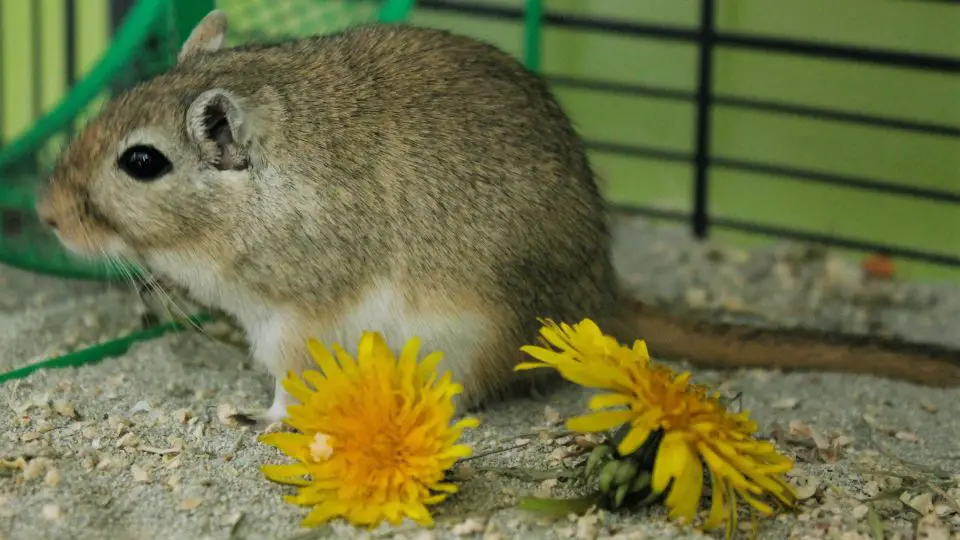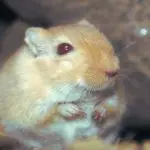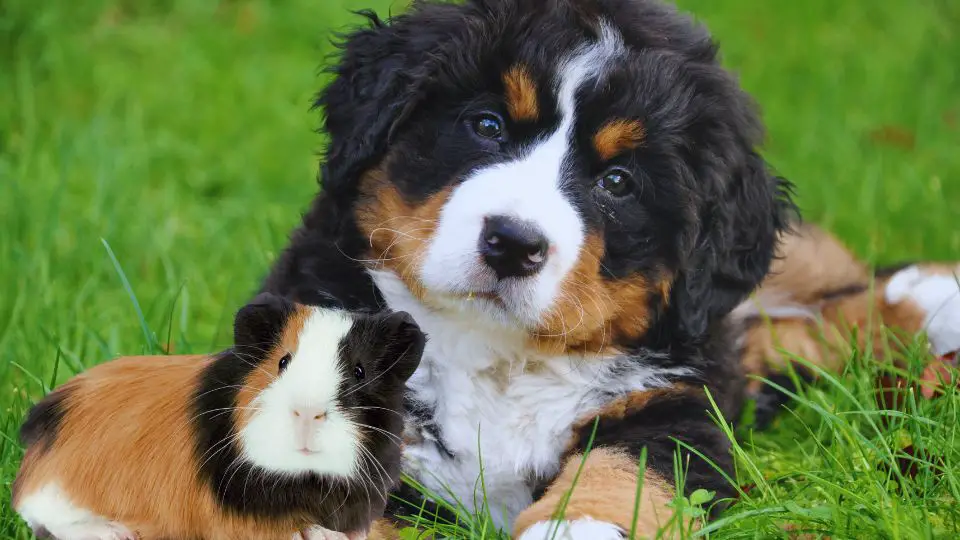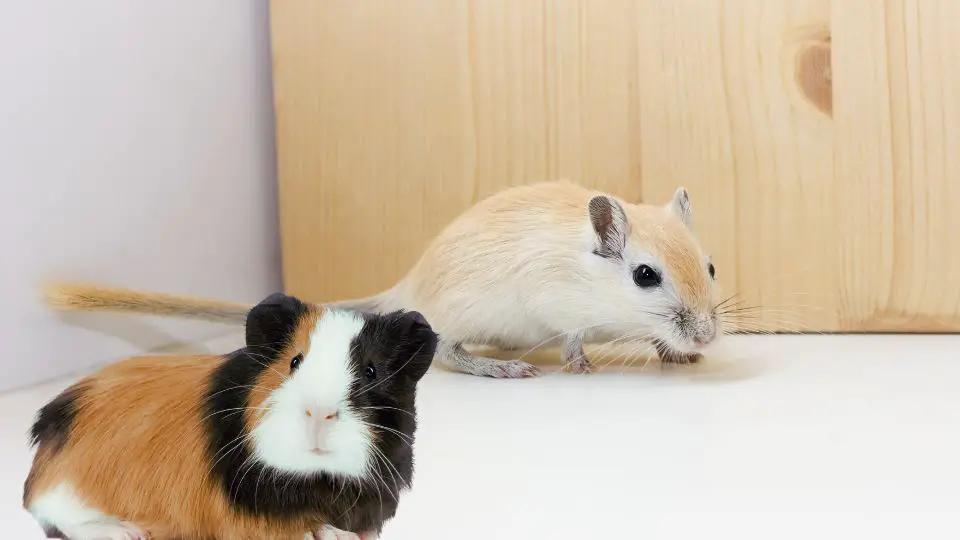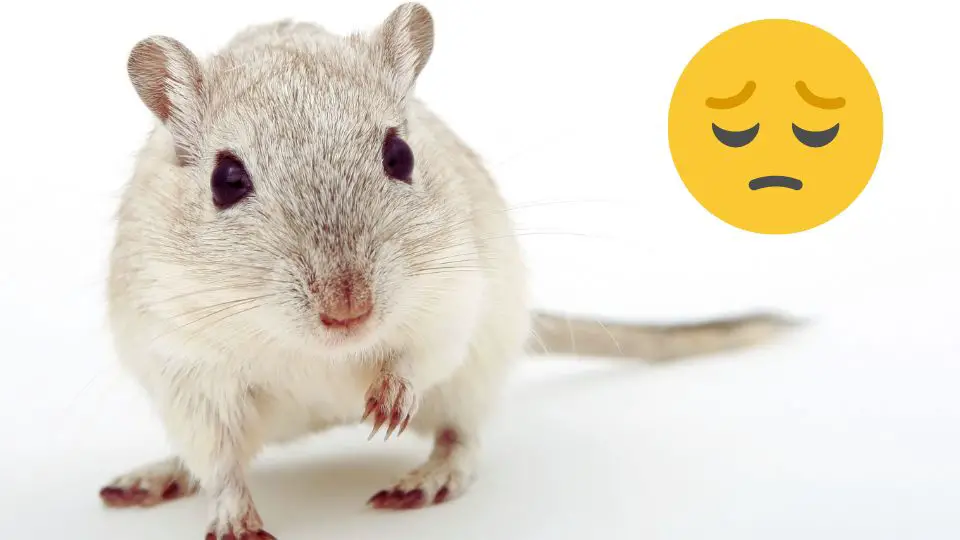If you’ve ever heard your gerbil chirping, you may be wondering about the reasons behind this unique vocalization. Gerbils have their own way of communicating with us and their fellow gerbils, and chirping is one of the sounds they produce.
Gerbils chirp for various reasons, including social interaction and bonding, territorial behavior, and response to external stimuli. Chirping can be a normal part of their communication and expression of emotions such as excitement or contentment.
In this article, we will delve into the fascinating world of gerbil chirping and explore the various reasons why your gerbil may be chirping.
Possible Reasons for Gerbil Chirping
Gerbils are captivating creatures with a unique way of expressing themselves: chirping. If you’ve ever heard your gerbil chirping, you may be curious about the reasons behind this behavior.
Vocalization for communication
Gerbils are social animals that engage in various vocalizations to communicate with each other. Chirping can be a way for gerbils to interact and bond with their companions, expressing their presence and fostering a sense of togetherness.
In our experience, gerbils chirp when they are feeling joyful or content. This vocalization can be a sign of happiness and satisfaction in their environment. Chirping in these contexts is often accompanied by playful behaviors and a relaxed body posture.
Territorial behavior
Gerbils may chirp as a form of territorial behavior, particularly when they perceive a potential threat or intrusion. By chirping, they are sending a warning signal to others, asserting their dominance, and establishing their boundaries.
Chirping can also serve as a way for gerbils to mark their territory. Along with scent marking, vocalizations like chirping help them communicate ownership and discourage other gerbils from encroaching on their space.
Response to external stimuli
Gerbils have a heightened sensitivity to their surroundings. Chirping can be a response to unexpected or loud noises, sudden movements, or unfamiliar stimuli. It is their way of expressing surprise, alarm, or heightened alertness.
Gerbils are attuned to changes in their environment, and chirping can indicate their reaction to perceived threats or alterations in their surroundings. This vocalization serves as a warning to others and helps them stay vigilant in potentially challenging situations.
Observing Gerbil Behavior
Chirping can occur in various situations, and understanding the context is key to interpreting its meaning. Take note of when your gerbil chirps and what is happening around them. Are they interacting with their companions? Are they in a new environment?
The frequency of chirping is also significant. Is it occasional, continuous, or in response to specific triggers? Context and frequency can help determine if chirping is a form of communication, a reaction to stimuli, or a display of territorial behavior.
Noticing Any Accompanying Body Language or Changes in Behavior
Gerbils communicate not only through vocalizations but also through body language. Observe your gerbil’s posture, tail movements, and facial expressions when chirping occurs. Are they standing upright, displaying relaxed or tense body language? Do they show signs of aggression, submission, or fear?
Any changes in behavior, such as increased activity or withdrawal, can provide clues about their emotional state or response to their surroundings.
Differentiating Between Chirping and Other Vocalizations
Gerbils have a repertoire of vocalizations, and it’s important to differentiate chirping from other sounds they make. Chirping is typically a high-pitched, rapid vocalization, often described as a series of short, quick calls.
Distinguishing chirping from other sounds like squeaking, squealing, or purring will help you accurately interpret their vocal language.
Addressing Concerns and Ensuring Well-being
As responsible gerbil owners, it’s essential to address any concerns and prioritize the well-being of our furry friends. By creating a safe and stimulating environment, providing enrichment and mental stimulation, and monitoring for signs of stress, illness, or discomfort, we can ensure that our gerbils lead happy and healthy lives.
Ensure a Safe and Comfortable Environment
A gerbil’s habitat should be secure, free from hazards, and designed to meet their natural instincts. This includes providing a spacious cage with appropriate bedding, hiding spots, and climbing opportunities.
Regularly inspect the enclosure to ensure there are no escape routes, sharp objects, or toxic substances that could harm your gerbil. Maintaining a comfortable temperature and suitable humidity level is also crucial for their well-being.
Provide Enrichment and Mental Stimulation
Gerbils are curious and active creatures, and mental stimulation is vital for their overall well-being. Offer a variety of toys, tunnels, chew toys, and climbing structures to keep them engaged and prevent boredom.
Rotate toys regularly to maintain novelty. Additionally, providing opportunities for foraging by hiding treats or food in different areas of their habitat stimulates their natural behaviors and keeps them mentally sharp.
Monitor for Signs of Stress, Illness, or Discomfort
Regular observation of your gerbil’s behavior and health is essential to catch any signs of stress, illness, or discomfort early on. Be attentive to changes in appetite, water consumption, activity levels, and overall behavior. Keep an eye out for symptoms such as weight loss, lethargy, changes in coat quality, respiratory issues, or any unusual discharge from the eyes, nose, or ears.
If you notice any concerns, consult a veterinarian experienced in small animal care for a proper diagnosis and treatment.
Seeking Veterinary Assistance
When seeking veterinary assistance for your gerbil, it is crucial to find a veterinarian who has experience and expertise in treating small animals, including gerbils. Not all veterinarians specialize in small mammals, so it’s essential to locate one with the necessary knowledge to address your gerbil’s specific needs. They will have a deeper understanding of gerbil health, behavior, and potential medical issues.
Chirping in gerbils is a natural behavior, but if it persists or is accompanied by other unusual symptoms, it may be a sign of an underlying health issue. If you notice any of the following concerning symptoms, it’s crucial to seek professional advice from a veterinarian:
- Changes in Appetite: A significant decrease or complete loss of appetite can indicate a health problem.
- Weight Loss: If your gerbil is losing weight rapidly or appears significantly underweight, it could be a cause for concern.
- Lethargy or Unresponsiveness: A sudden lack of energy, decreased activity levels, or unresponsiveness may indicate an underlying health issue.
- Respiratory Issues: Difficulty breathing, wheezing, or coughing can be signs of respiratory problems that require veterinary attention.
- Abnormal Discharge: Unusual discharge from the eyes, nose, or ears may suggest an infection or other medical condition.
FAQ
Why is my gerbils breathing squeaking?
Squeaking or wheezing sounds during a gerbil’s breathing can indicate respiratory issues or an underlying health problem. It is essential to consult a veterinarian experienced in small animal care to diagnose and treat any potential respiratory conditions or infections.
How do I know if my gerbil is stressed?
Gerbils may display various signs of stress, including changes in behavior and body language. Common indicators of stress in gerbils include excessive grooming, decreased appetite, weight loss, aggression, hiding, and restlessness. If you suspect your gerbil is stressed, it’s important to assess their environment for potential stressors and make appropriate adjustments to promote their well-being.
Why do gerbils whistle?
Gerbils may whistle as a form of communication. Whistling can occur during social interactions, expressing excitement, or to signal alarm or alertness. It can also be a territorial behavior or a response to external stimuli. The context and frequency of the whistling can provide insights into its meaning.
Why is my gerbil purring?
Gerbils purr as a sign of contentment and relaxation. It is often associated with a comfortable and calm state. Purring can occur when gerbils are being gently handled, during grooming, or while they are resting. Purring is typically a positive indicator of their well-being and a reflection of their comfort and happiness.
Conclusion
In conclusion, gerbil chirping can have multiple meanings depending on the context and accompanying behavior. It can be a way for gerbils to communicate and bond with their companions, express excitement or contentment, assert their territorial dominance, or react to external stimuli.
By observing the context, frequency, and accompanying body language, you can gain insights into the specific reasons for your gerbil’s chirping.

